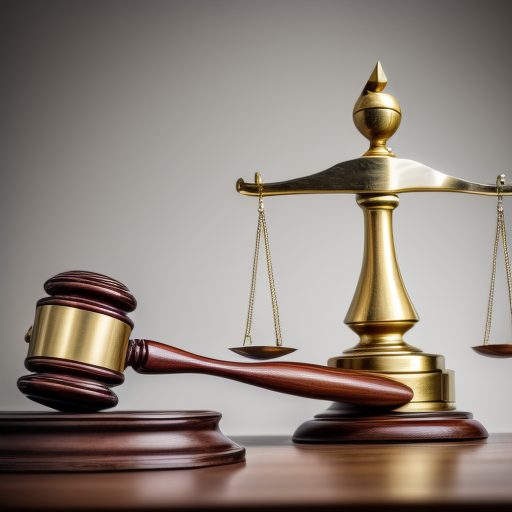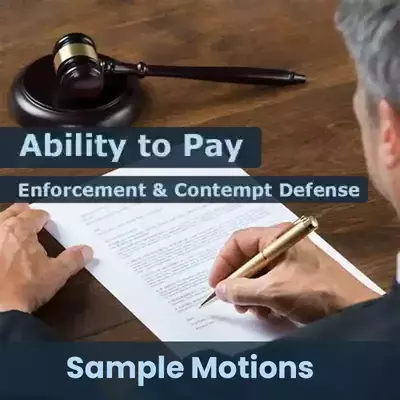Preserve Your Rights in Family Courts
When Your Attorney Says Leave That Issue for the Appeal: Understanding the Importance of Preserving Your Rights
In the realm of family law, the notion of leaving certain issues for appeal might seem tempting, but it's crucial to understand the implications and considerations before following this path. Here's why:
Misconceptions and Implications

- Legal Understanding:Any attorney suggesting leaving issues for appeal might lack a clear understanding of the law or might not have your best interests in mind. Successful appeals often require meticulous groundwork in the trial court.
- Trial Confirmation:Most issues subject to appeal need to be properly addressed during the trial or pre/post-trial proceedings. This is necessary to preserve the issue for appeal and gain the opportunity for a thorough judicial review.
Fundamental Fairness and Appellate Process

- Preserving the Issue:Giving the opposing party and the trial judge a chance to address your challenge is a fundamental fairness principle. If the trial judge didn't have a chance to rule on the issue, it might not be open for appeal.
- Appellate Record:Appellate courts cannot consider new evidence not presented at trial. Therefore, it's essential to ensure that the legal and factual basis for your appeal is well-established in the trial court record. This is your opportunity to get your arguments recorded in the record.
3. Strategic Preservation of Rights


- Jurisdictional Questions:Some legal questions of significant importance, like jurisdictional challenges, can be raised for the first time on appeal. However, it's often advantageous to present such challenges at trial to get your arguments into the record and conserve space in your appellate brief.
- Trial Court Record:Demonstrating jurisdictional arguments in the trial court record is beneficial, allowing you to refer directly to these arguments in your appellate brief. This strategy can expose any weaknesses in the trial judge's responses and it gives your judge an opportunity to create errors that you can use to overturn his orders.
4. Protecting Your Rights
- Multiple Purposes:When hiring an attorney, clarify that one of your key expectations is their ability to protect your rights through technical knowledge and skillful preservation of points for appeal.
- Constitutional Challenges:Make sure your attorney understands your desire to challenge constitutional violations and preserve your right to access competent state courts for protection.
- State's Best Interest Policy:Emphasize the need for your attorney to safeguard your right to challenge state policies related to your child's best interests through constitutionally sound federal question challenges.
5. Overcoming Challenges

- Unbiased Protection:Judges might be disinclined to overturn their own policy choices. To ensure a fair hearing, it's essential to challenge their authority and back your argument with well-constructed points in the trial court record. You want to demonstrate how best interest is a policy choice NOT a judicial determination.
Conclusion
Navigating family court proceedings requires strategic planning and a thorough understanding of the appeals process. Don't solely rely on leaving issues for appeal; instead, work closely with your attorney to build a strong trial court record that lays the foundation for a successful appeal if one ends up being needed. Your goal is to succeed at trial while protecting any errors the court might make along the way. If you do not preserve those errors you will not be able to get justice from the appellate court if the judge fails to deliver justice. At Fix Family Courts, we're committed to helping you protect your rights and challenge unconstitutional actions. Together, we can ensure that your child's best interests are upheld while safeguarding your fundamental rights. Let us guide you through the legal process and empower you to "confirm your ticket for Appeal."
Contrary to what your attorney might tell you, preparing the groundwork for an appeal is NOT planning to lose. It is anticipating that winning may require an appeal and you want to communicate to the trial court that you are fully prepared to win on appeal if the trial court's violations of your rights make that a necessity.
Our schools did NOT become racially integrated from a trial court win. It didn't even happen at the appellate court. It took an appeal all the way to the Supreme Court. Thurgood Marshall, then an attorney, later a Supreme Court justice, properly laid the groundwork at trial to win on appeal. He knew this might be necessary following hundreds of years of slavery and racial discrimination that had resulted in courts that were just as corrupt then as family court is today.



























